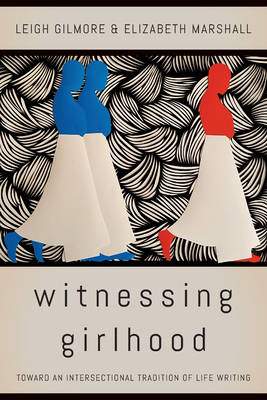
- Retrait gratuit dans votre magasin Club
- 7.000.000 titres dans notre catalogue
- Payer en toute sécurité
- Toujours un magasin près de chez vous
- Retrait gratuit dans votre magasin Club
- 7.000.0000 titres dans notre catalogue
- Payer en toute sécurité
- Toujours un magasin près de chez vous
Witnessing Girlhood
Toward an Intersectional Tradition of Life Writing
Leigh Gilmore, Elizabeth Marshall
Livre relié | Anglais
153,45 €
+ 306 points
Description
When more than 150 women testified in 2018 to the sexual abuse inflicted on them by Dr. Larry Nassar when they were young, competitive gymnasts, they exposed and transformed the conditions that shielded their violation, including the testimonial disadvantages that cluster at the site of gender, youth, and race. In Witnessing Girlhood, Leigh Gilmore and Elizabeth Marshall argue that they also joined a long tradition of autobiographical writing led by women of color in which adults use the figure and narrative of child witness to expose harm and seek justice. Witnessing Girlhood charts a history of how women use life narrative to transform conditions of suffering, silencing, and injustice into accounts that enjoin ethical response. Drawing on a deep and diverse archive of self-representational forms--slave narratives, testimonio, memoir, comics, and picture books--Gilmore and Marshall attend to how authors return to a narrative of traumatized and silenced girlhood and the figure of the child witness in order to offer public testimony. Emerging within these accounts are key scenes and figures that link a range of texts and forms from the mid-nineteenth century to the contemporary period. Gilmore and Marshall offer a genealogy of the reverberations across timelines, self-representational acts, and jurisdictions of the child witness in life writing. Reconstructing these historical and theoretical trajectories restores an intersectional testimonial history of writing by women of color about sexual and racist violence to the center of life writing and, in so doing, furthers our capacity to engage ethically with representations of vulnerability, childhood, and collective witness.
Spécifications
Parties prenantes
- Auteur(s) :
- Editeur:
Contenu
- Nombre de pages :
- 160
- Langue:
- Anglais
Caractéristiques
- EAN:
- 9780823285495
- Date de parution :
- 17-09-19
- Format:
- Livre relié
- Format numérique:
- Genaaid
- Dimensions :
- 152 mm x 229 mm
- Poids :
- 381 g

Les avis
Nous publions uniquement les avis qui respectent les conditions requises. Consultez nos conditions pour les avis.






